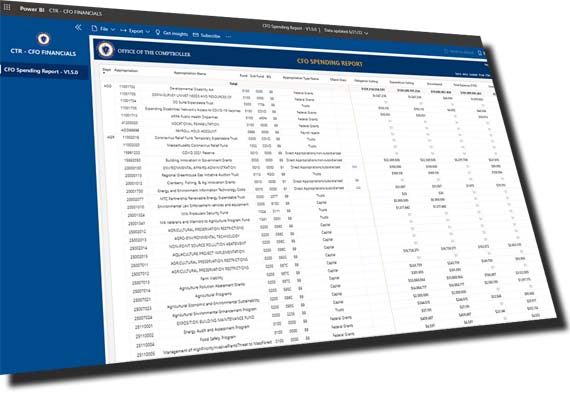What Is a Chief Fiscal Officer?
A Chief Fiscal Officer:
- Should be equivalent in title or rank to an assistant or deputy to the Department Head and should have be authorized to sign for the Department Head (Department Head Signature Authorization).
- Assumes the responsibility for all financial, accounting, and budget issues for the Department including establishing an internal structure, with internal written procedures, and sufficient oversight to effectively manage department activities and monitor compliance with applicable laws, regulations, and policies.
- Ensures that there is either appropriate segregation of duties or appropriate secondary review of fiscal obligations, expenditures, and reporting requirements to maintain adequate fiscal control and accountability.
- Is responsible for department compliance with MMARS document (transaction) delegation responsibilities (e.g., procurement, credit cards, etc.).
- Serves as CTR’s key contact in the Department’s financial decision-making and policy processes.
- Oversees payroll (including payroll cost reporting), budget, revenue, payee, procurement, expenditure, fixed asset, and internal control issues as these issues relate to the state accounting system.
- Works closely with Department Head and staff to ensure that department expenditures (including payroll) will not exceed appropriations in violation of state finance law and that, if appropriation shortfalls are anticipated, the necessary steps are taken (in accordance with the law) to reduce department obligations and expenditures to live within current appropriations.
- Attends pertinent training sessions related to fiscal responsibilities within the Department and obtains and provides to appropriate staff the necessary training, materials, Intranet/Internet access, and newly issued policies and other materials to enable staff to effectively manage department fiscal activities in accordance with applicable laws, regulations, and policies.
- Ensures that all written and electronic communications from CTR, Administration and Finance, Treasury, and other applicable oversight departments are disseminated to the appropriate Department personnel in a timely manner.
